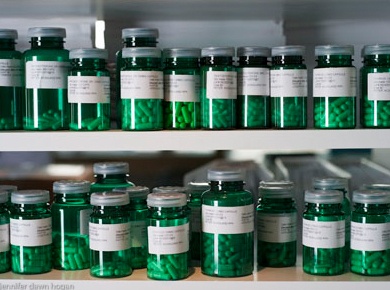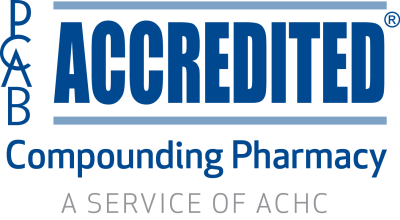Hypothyroidism
The body’s thyroid gland produces two types of peptide hormones. Liothyroinine (T3) is the active thyroid molecule, the form that exerts its effects on the body’s cells. The body also produces levothyroxine (T4) and converts it to T3 in the blood vessels.
The conventional treatment of hypothyroidism starts a patient off on T4 alone (i.e. Synthroid, Levoxyl). For many patients, this is an effective treatment, but it assumes that they efficiently convert T4 to T3. For patients who do not respond well to T4, desiccated porcine thyroid (i.e. Armour Thyroid, Nature-throid) which contains T3 and T4 in roughly physiological doses, can be a viable option.
Another option is a compounded thyroid capsule that has T3 and T4 in a sustained-release form. This product is similar to the off-the-shelf products like Synthroid (T4) and Cytomel (T3) with two distinct advantages. First, T3 and T4 can be combined into a single dose and customized to a strength that perfectly suits a patient’s profile. Secondly, by making these capsules sustained-release, it prolongs the activity of the T3, which has a short half-life. This allows the T3/T4 capsule to be taken once daily for most patients.
For patients taking any thyroid medication, it is important to know that these drugs interact with most foods, drugs, and supplements. Therefore, it is important to take the capsule one hour before any food or drug, and four hours before any supplement containing minerals like iron, calcium, or zinc.
If using a compounded thyroid medication, it is important to choose a compounding pharmacy that is using a high quality bulk thyroid. The FDA states that for thyroid powder to be considered USP grade (or pharmaceutical grade), it must have between 90 and 110% of the allowed amount of T3 and T4. Where a compounding pharmacy sources its chemicals matters. For a summary of our robust quality assurance procedures at Koshland Pharm, click here.

